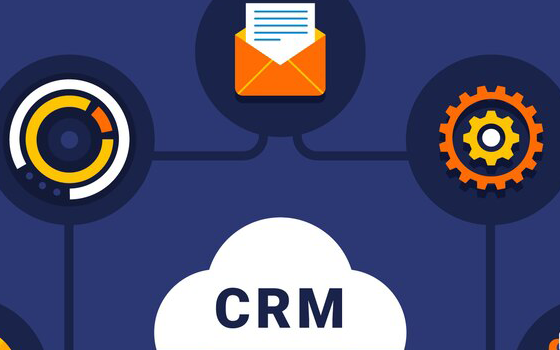
The importance of Customer Relationship Management (CRM) and Social Media Assets cannot be overstated. They are the twin pillars upon which successful businesses build lasting relationships, foster brand loyalty, and drive revenue growth.
In this blog, we will delve into the art and science of seamlessly integrating CRM with your social media assets, a combination that can truly be a game-changer for your business.
We'll walk you through the strategies and tactics that will not only elevate your brand but also nurture your customer relationships in ways you've never imagined. From personalized marketing campaigns to proactive issue resolution, the synergy between CRM and social media assets is a potent recipe for success.
Whether you're a seasoned marketer looking to fine-tune your approach or a business owner seeking ways to stand out in the crowded digital marketplace, this blog is your essential guide. Get ready to transform your brand's presence, captivate your audience, and witness the remarkable impact of integrating CRM with your social media assets. The future of your brand's success starts here.
Preparing for the Integration of CRM and social media

Preparing for the integration of CRM and social media for the first time is a strategic move that can significantly enhance your customer engagement and business growth. To ensure a successful integration, careful planning and execution are essential.
Here's a step-by-step guide to help you get started:
1. Begin by defining your goals and objectives for integrating CRM and social media. Are you looking to increase brand awareness, boost customer retention, drive lead generation, or improve customer service? Your objectives will shape your integration strategy.
2. Allocate a budget specifically for this integration. Consider factors like software costs, employee training, content creation, and any potential advertising spend on social media platforms. Ensure your budget aligns with your integration goals.
3. Select a CRM system that aligns with your business needs and integrates seamlessly with social media platforms. Consider popular options like AI Octopus which has robust social media integration features. It is a tried and tested tool that is guaranteed to produce instant results.
4. Research and identify the social media platforms where your target audience is most active. Don't try to be everywhere; focus on platforms that align with your business niche and where your customers engage the most. AI Octopus supports multiple social media making it a highly flexible and versatile tool for most businesses.
5. Determine what data you need to sync between your CRM and social media accounts. This might include contact information, interactions, preferences, and demographics. Ensure your CRM system can handle this data effectively.
6. Invest in training for your team, both on the CRM software and social media best practices. Ensure they understand the integration process, how to interpret data, and how to engage with customers effectively on social media.
7. Craft a content strategy that aligns with your CRM and social media integration. Create engaging and shareable content that resonates with your target audience. Content is the king in the world of social media.
8. Explore automation tools that can streamline your social media management and CRM integration. These tools can schedule posts, track interactions, and capture valuable customer data automatically. Ask AI Octopus for a live demo of what you can do and achieve with it on social media.
9. Regularly monitor and analyze the data generated from your CRM and social media integration. Identify trends, customer behavior, and areas for improvement. Adjust your strategies accordingly.
10. Ensure that your integration complies with data privacy regulations, such as GDPR or CCPA. Respect customer preferences regarding data collection and usage.
11. Don't expect perfection from the start. Test your integration, gather feedback, and make continuous improvements. Adjust your strategies based on the performance data you collect.
12. Assess the return on investment (ROI) of your integration efforts. Measure the impact on customer satisfaction, lead generation, conversion rates, and revenue. Use this data to refine your strategy and justify your budget allocation.
The Gist
Remember that the integration of CRM and social media is an ongoing process. As your business evolves and customer preferences change, your integration strategy should adapt accordingly. With careful planning and a commitment to providing value to your customers, you can harness the power of this integration to elevate your brand and achieve your business goals.